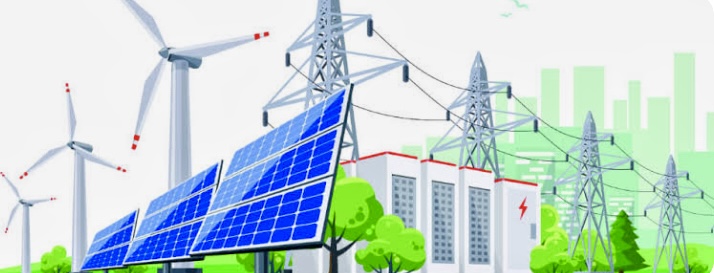Rajasthan, recently felicitated for being the leader in renewable energy space at the Global RE Investors Meet, is preparing an Integrated Renewable Energy Policy (IREP) covering solar, wind and hybrid, energy storage, green hydrogen and its derivatives, biofuels and electric vehicle charging infrastructure.
The draft new policy is currently being evaluated by the finance department before getting approval from the cabinet.
“The policy is likely to be launched in next two weeks,” said a senior official of energy department.
Currently, the state has renewable projects worth 28 GW running with generation of 470 crore units of power in renewable sector while another 32 GW is underway.
There is potential of installing 142 GW of solar power and 284 GW of wind power in Rajasthan. The immediate target is to set up 115 GW of solar and wind power by 2031-32.
Why new integrated renewable energy policy?
Rajasthan government is organising a global investment summit – Rising Rajasthan – from 9-11 December, 2024. Rajasthan being leader in solar power, renewable sector is the magnet for pulling investment in the state.

“The government is making the existing policy more attractive and lucrative so that more and more players come here to invest,” the official said.
What's new in the policy?
While there will be some minor changes in existing solar policy, wind power policy, biomass policy and green hydrogen policy, the government will integrate all the policies into one. It will also introduce the pumped storage policy and battery storage policy to make the proposition more lucrative.
The new policy's focus will be on increasing the RE mix, promoting clean energy solutions to reduce emissions, and supporting national net-zero targets.
The policy seeks to create investment opportunities, facilitate a circular economy around clean energy, and generate both direct and indirect employment. It will be regularly evaluated to assess its impact and ensure the inclusion of new RE market guidelines from the Government of India and the State Government.
How storage policies will bring revolution in Rajasthan renewable?
One of the significant challenges with renewable energy is its variability. Solar power generation peaks during the day, while wind power is often strongest at night. Pumped storage projects offer a solution by storing excess energy generated during periods of low demand and releasing it during peak demand. This capability allows for better integration of renewable energy into the grid, optimising the use of green energy and reducing reliance on fossil fuels.
Similarly, battery storage mitigates blackouts and ensures consistent power supply, even during abrupt shifts in energy supply or demand. Furthermore, they alleviate grid congestion, potentially deferring investments in new transmission lines.
Besides this, during peak electricity demand, battery storage performs peak shaving by releasing stored energy, easing grid strain. This not only cuts electricity costs but also enhances grid stability.
The BuckStopper, run by a group of seasoned journalists, holds the powerful accountable. The buck stops with them, as they cannot shrug off their official responsibilities.